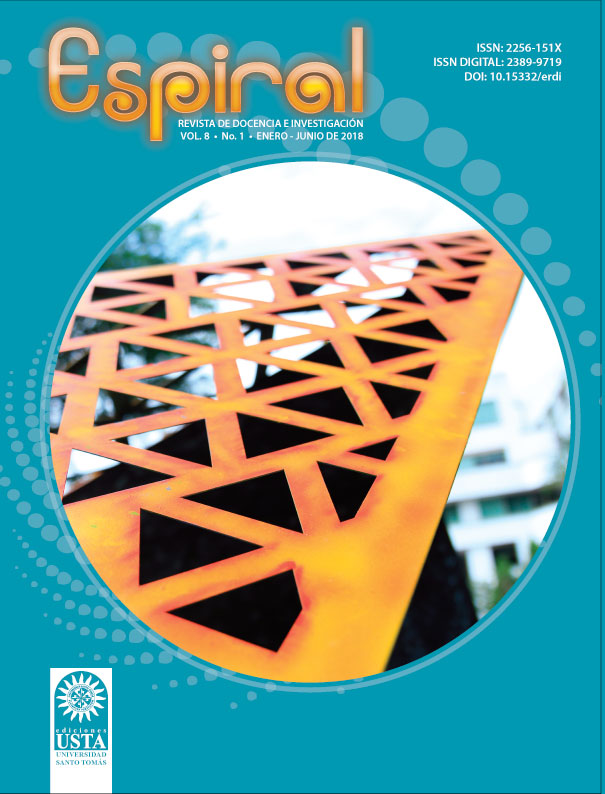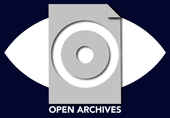Development of scientific competences in primary school students through the didactic strategy of problem solving
DOI:
https://doi.org/10.15332/erdi.v8i1.2117Keywords:
Competence, scientific competence, problem-based learning (PBL), problem solving, scientific methodAbstract
Objective and textual typology. Through the development of the present article is intend to give to know a quantitative research, which sought to establish if there was a significant difference between two groups of fifth grade of the Escuela Normal Superior of Bucaramanga in the framework of the work of different strategies. In the control group, traditional methodology and in the experimental group, the problem solving strategy. This in order to compare the development of scientific competences.
Methodology. The work with the experimental group consisted in presenting problem situations to the students, where they had to use the stages of the scientific method: hypothesis, experimentation, testing and validation of hypotheses, search of information in diverse sources and formulation of conclusions.
Results. Problem Based Learning (PBL) offers the possibility for the student to be an architect in the construction of their own knowledge, to develop scientific skills and competences, as well as to promote autonomy and awareness of the importance of learning processes, and in this way enhance the students’ development of scientific thinking.
Downloads
References
Ausubel, D. (1976). Psicología educativa: Un punto de vista cognoscitivo. México: Ed. Trillas.
Barrows, H. (1996). Problem-Based Learning in Medicine and Beyond: A Brief Overview”. In Wilkerson L., y GijselaersW. H. (Eds.). Bringing Problem-Based Learning to Higher Education: Theory and Practice, (pp. 3-12). San Francisco, Jossey Bass Publishers.
Barrows, H. (1986). A Taxonomy of problem-based learning methods. Medical Education, 20/6, 481-486. Recuperado de http://www.ncbi.nlm.nih.gov/pubmed/3796328
Batista, F. Y. E. (2013). Estructuración sistémica del contenido para la resolución de problemas vivenciales del área de ciencias naturales en la educación primaria. Havana, CU: Editorial Universitaria. Recuperado de: http://www.ebrary.com
Campo, J., Cano, J., Herrera, D., Nova, J., Gasco, C., Bascones, A., & Bascones, J. et al. (2008). Aplicación de un sistema mixto de enseñanza tradicional / aprendizaje basado en problemas en asignatura de urgencias en odontología. Recuperado de https://www.researchgate.net/publication/228117766_Aplicacion_de_un_sistema_mixto_de_ensenanza_tradicional_aprendizaje_basado_en_problemas_en_la_asignatura_de_urgencias_en_odontologia.
Caño, A., Luna, F. (2011). PISA: Competencia científica para el mundo del mañana. Recuperado de http://www.educando.edu.do/files/1213/8428/1849/ciencias_PISA2009.pdf
Coll, C. (1988). Significado y sentido en el aprendizaje escolar. Reflexiones en torno al concepto de aprendizaje significativo. En Infancia y Aprendizaje, N° 41, 131-142.
Instituto Colombiano para la Evaluación de la Educación ICFES. (2016). Ejemplos de preguntas saber 3, 5 y 9. Recuperado de http://www.icfes.gov.co/estudiantes-y-padres/pruebas-saber-3-5-y-9-estudiantes/ejemplos-de-preguntas-saber-3-5-y-9
Ministerio de Educación Nacional - MEN. (2004). Estándares básicos de competencias en ciencias naturales y ciencias sociales. Recuperado de http://www.mineducacion.gov.co/1759/articles-81033_archivo_pdf.pdf
Morales, P., Landa, V. (2004). Aprendizaje basado en problemas. Theoria, vol 13, 145-157. Universidad de Bio-Bio, Chillan Chile.
OECD. (2011). PISA: Competencia científica para el mundo de mañana. II Ejemplos de ítems para uso del profesorado. Recuperado de http://www.educando.edu.do/files/1213/8428/1849/ciencias_PISA2009.pdf
Piaget, J. (1999). Psicología de la inteligencia. Madrid: Ed. Psique.
Pozo, J. & Gómez, M. (2006). Aprender y enseñar ciencia. Recuperado de https://books.google.es/books?hl=es&lr=&id=aTo6TMfVEIgC&oi=fnd&pg=PA11&dq=aplicaci%C3%B3n+del+m%C3%A9todo+cient%C3%ADfico+en+el+aula&ots=HjU8zEvSSq&sig=ZOY51KoTFJt-BfStoOT4wsBTqw0#v=onepage&q=aplicaci%C3%B3n%20del%20m%C3%A9todo%20cient%C3%ADfico%20en%20el%20aula&f=false
Downloads
Published
How to Cite
Issue
Section
License
Publishing and copyright
The authors of the articles accepted to be published, transfer proprietary rights to Espiral, Journal of Teaching and Research for the partial reproduction of the published work in electronic media (websites, indexes, directories), as long as their purposes are academic but not commercial.








